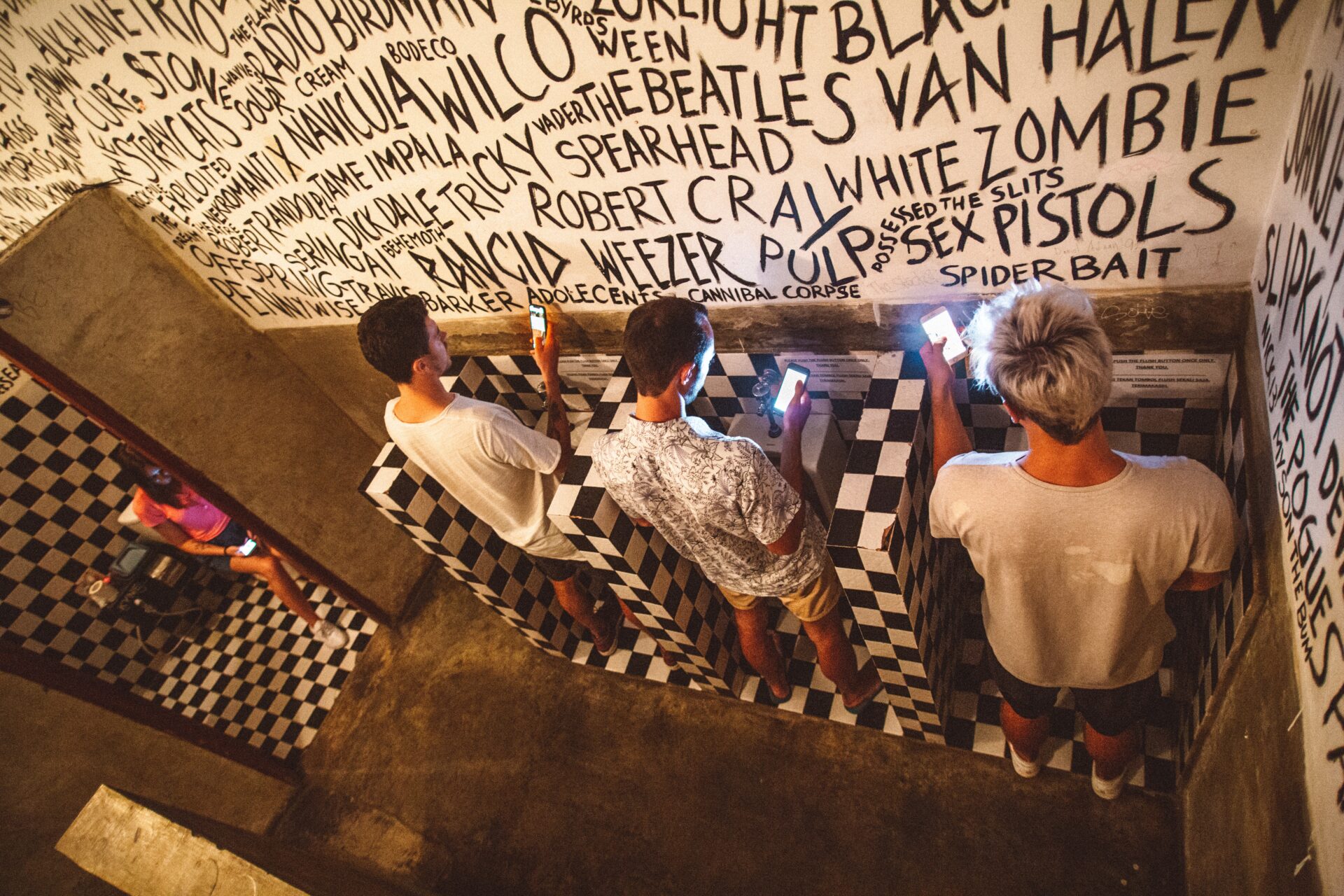
How to not be a Screenborg
2020 was the year of digital relationships. Classrooms became online environments, “you’re on mute” was probably the most said phrase in business meetings, and apps like Facetime and house party became essential in connecting with friends and family.
More than just digital relationships, 2020 had us using social media more than ever. The Digital 2020 October Global Statshot reported that the average internet user spent up to 7 hours a day on their devices between April and June 2020. Which coincided with over 450 million people creating a social media account in the last year.
#Addicted
It was clear the 2020 pandemic had an impact on global social media use; especially when you consider how much of our lives became digitally-focused during the lockdown periods. It was the perfect breeding ground for social media addiction.
I’ll be honest, I was pretty shocked when I read that the typical social media user spends about 15% of their waking life using social platforms. In attempts to not be part of that statistic, I tried deleting my Instagram app and Tik Tok countless times to only find myself re-downloading them not long after. Why was it so hard for me to spend time away from them?
Social media addiction is a behavioural addiction that is distinguished by someone:
- being overly concerned about social media;
- continually urged to log onto and use their online platforms;
- and spending a large amount of time on social media that it starts to impacts other important areas of life.
Lost in the likes
Social media “attention” has been linked to causing a dopamine hit. Dopamine is a neurotransmitter that is created in our brains whenever we feel pleasure. Any time we get a notification or open up a social networking site like Facebook or Instagram we produce this hormone. The dopamine effect from social media has been studied to show similarities with other addictive activities like gambling and recreational drug use.
No wonder social media use can become a habit! Every time you experience dopamine from opening an app or creating a post it signals to your brain that this is a rewarding activity.
Similarly, social media can be used as a source of procrastination… stating the obvious, aren’t I… Every time you check your phone whilst writing that essay you’re struggling to complete, you’re telling your brain that it helps reduce boredom, and boom – a whole hour of study time has been spent on your phone.
Keep track of your usage
In the tech companies’ attempts to help us become more aware of our screen usage, we can now see how much time we spend on our phones on a daily or weekly basis. These settings can also tell us how many times we’ve picked up our phone on any given day. I had over 300 pick-ups on one of my highest screen time days … 😳
Both Android and Apple phones have screen time settings which allow you to put limits on how much you use certain applications every day. As intimidating (and embarrassing) as it may feel to look at how much you use your phone, it can be an eye-opener for which social media platforms you consume the most. If you’re like me and fail at keeping your apps deleted for an extended amount of time – try setting some screen limits on your most-used apps.
Other ways to limit your social media use can be:
- leaving your phone in another room when you go to bed;
- turning it off during non-phone related activities like exercising or catching up with friends;
- turning do not disturb on;
- turning push notifications off;
- muting certain people on social media;
- logging out of the apps you use the most
Being a mindful social media user is key
Becoming mindful in how you use your phone is key to helping you build a healthier relationship with it. Overuse of social media can lead to feelings of anxiety, depression, FOMO, and isolation. Ever checked your Snapchat on a Friday night and immediately wished you were out clinking fancy drinks too? #yep
Social media is part of our lives and has allowed us to connect with people like never before…
How else would we have been able to connect during the pandemic without zoom meetings and face timing our relatives in other states, and countries?! And let’s not forget the incredible way social media helped spread initiatives like the Black Lives Matter campaign.
Becoming a mindful social media user is all about understanding what social media activity impacts you in a negative way. Whether it be unfollowing accounts that led you to feel inadequate or asking yourself if the photo you’re about to post is aligned with your personal values. A great article from The Good Trade delves into using social media with purpose here.
The takeaway
Friend and foe – your phone and its selection of applications is just like everything else – best in moderation. Start small in how you decide to limit your social media and phone use, and be kind to yourself – not everything you see on social media is true to life.
Our team at Advocacy and Welfare offers confidential support to students! You can contact us here.
Student Success also has confidential counselling for students, you can find them here.
Lifeline is also a 24/7 hotline and you can call them on 13 11 14


